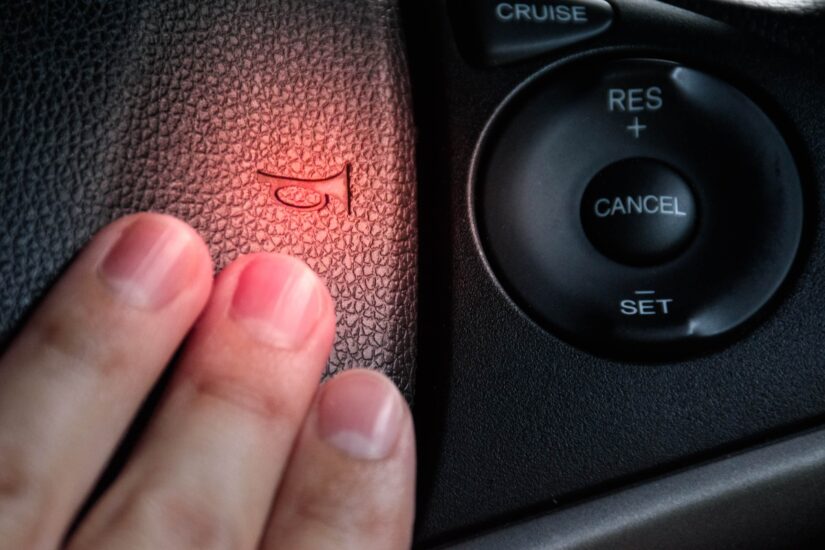
May 5, 2025
Catalytic converter theft has become a significant problem across Texas, with the state experiencing an astonishing 10,881% increase since 2019, making it the second-highest in the nation with 136 thefts per 100,000 vehicles in 2022.
These auto parts are targeted for their valuable metals—rhodium, platinum, and palladium—which thieves can sell for $20 to $350 while costing victims thousands in repairs. Texas lawmakers have responded with increasingly robust legislation to combat this epidemic.
House Bill 4110 (2021): The First Line of Defense
In June 2021, Governor Greg Abbott signed House Bill 4110, making significant changes to Texas law:
- Elevated criminal penalties: Made buying or selling stolen catalytic converters a state jail felony for first offenses and a third-degree felony for subsequent offenses
- Documentation requirements: Required metal recycling entities to maintain and submit records to the Department of Public Safety
- Vehicle identification: Required sellers to provide year, make, model, and VIN of the source vehicle
- Proof of ownership: Required sellers to provide title documentation
- Biometric verification: Required recyclers to obtain thumbprints from sellers
- Cash restrictions: Limited payment to $25 cash maximum for regulated metal
Despite these measures, catalytic converter thefts continued to rise, indicating a need for stronger legislation.
The Deputy Darren Almendarez Act (SB 224, 2023)
On March 31, 2022, Harris County Sheriff’s Deputy Darren Almendarez was killed while confronting men attempting to steal his truck’s catalytic converter. His death became the catalyst for stronger legislation.
State Senator Carol Alvarado authored Senate Bill 224, named the “Deputy Darren Almendarez Act,” which Governor Abbott signed into law in May 2023. This comprehensive legislation expanded the previous law with a more robust framework:
- Presumption of theft: Presumes those possessing two or more catalytic converters have stolen them if they cannot prove lawful ownership
- Enhanced criminal penalties: Created a tiered structure based on value
- Class A, B, or C misdemeanors (loss of $100-$2,500)
- State jail felony (loss of $2,500-$30,000)
- Third-degree to first-degree felony (loss of $30,000-$300,000+)
- Organized crime provisions: Allows prosecutors to treat thefts as organized crime
- Firearm enhancement: Includes penalty enhancements if the thief possesses a firearm
- Business-to-business loophole closure: Clarifies who can legally buy and sell converters
- New criminal offense: Creates a specific offense for unauthorized possession
The Deputy Darren Almendarez Act represents one of the strictest approaches in the nation, reflecting Texas’ commitment to addressing this crime comprehensively.
Impact and Effectiveness
The strengthened laws appear to be making a significant impact. According to State Farm Insurance data, Texas has experienced one of the largest declines in theft claims nationwide. In 2022, State Farm processed approximately 6,300 claims across Texas, but from January through June of 2023, they filed only 1,275 claims—a dramatic reduction.
Local law enforcement agencies report similar trends. Lufkin police documented 51 catalytic converter thefts in 2022, dropping to just 13 in 2023. Similarly, Nacogdoches Police saw a decline from 26 thefts to only 6 reports.
This trend continues in 2024, with State Farm reporting a 74% reduction in theft claims nationwide during the first half of 2024 compared to the same period in 2023.
The decline can be attributed to several factors:
- Increased accountability through documentation requirements
- Enhanced penalties raising the risk for potential thieves
- Disruption of the market for stolen converters
- Stricter business compliance procedures

Regulatory Framework for Businesses
A key aspect of Texas’ approach involves placing responsibility on businesses that might serve as markets for stolen converters. Metal recycling entities must now:
- Verify that catalytic converters match manufacturer specifications for the identified vehicle
- Physically mark catalytic converters to increase traceability
- Maintain comprehensive documentation with photographic evidence
- Obtain thumbprints from sellers
- Limit cash payments to deter anonymous sales
These requirements create administrative burdens for legitimate businesses but protect them from unwittingly participating in criminal enterprises.
Prevention Strategies
While legal penalties address the market for stolen catalytic converters, prevention remains essential. Several strategies have emerged to complement the legal framework:
- VIN etching programs: Many law enforcement agencies offer free events where vehicle identification numbers are etched onto catalytic converters
- Anti-theft devices: Aftermarket shields, cages, and protective devices make theft more difficult
- Parking strategies: Parking in well-lit areas, using garages, or backing vehicles against walls
- Alarm systems: Specialized alarms can detect vibration or movement associated with theft attempts
Comparison to Other States
Texas now has among the strictest catalytic converter theft laws in the nation, but other states have taken various approaches:
- California implemented multiple bills limiting who can legally sell converters and requiring stricter documentation
- Minnesota created a grant program to fund VIN etching
- North Carolina made catalytic converter theft a felony regardless of value
At the federal level, the proposed “Preventing Auto Recycling Theft Act” (PART Act) would create a national framework with VIN etching grants and manufacturer requirements.
Challenges and Future Directions
Despite progress, several challenges remain:
- Cross-jurisdictional issues: Stolen converters often cross state lines
- Adaptability of criminal networks: Theft rings may develop new circumvention strategies
- Manufacturing solutions: Vehicle manufacturers could redesign converters to be more theft-resistant
- Resource limitations: Some agencies face constraints in investigation and prosecution
Future enhancements might include:
- Advanced tracking technologies
- Manufacturer requirements for anti-theft designs
- Better information-sharing systems between jurisdictions
- Expanded public education about prevention
Combating Catalytic Converter Theft
Texas has emerged as a national leader in combating catalytic converter theft through its comprehensive legislative approach. The dramatic decline in theft rates demonstrates the effectiveness of these targeted measures, with a 74% reduction in claims nationwide during the first half of 2024, combining enhanced criminal penalties, strict business regulations, and community prevention efforts.
If you’ve been affected by catalytic converter theft, contact The Napier Law Firm for experienced legal support. Our team can provide the guidance and representation needed to protect your interests in this evolving legal landscape.